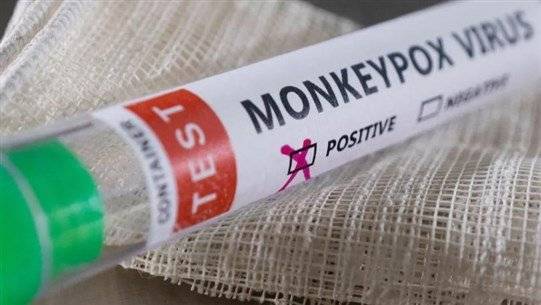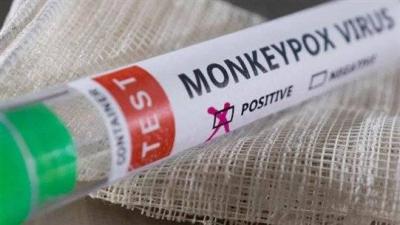Despite the crises Lebanon is facing, health concerns remain paramount due to the repercussions of the economic and financial reality on medical and healthcare sectors. After enduring immense hardships due to the spread of the COVID-19 pandemic, is there reason for concern today, especially since no preventive measures have been taken and no guidelines have been announced?
In this regard, the President of the Lebanese Medical Social Gathering and representative of the European-Middle Eastern Medical Association in Lebanon, Professor Raef Reda, pointed out that the number of monkeypox virus cases worldwide has reached 17,753 to date, with its spread across 74 countries, up from just 3,000 cases in 50 countries a month ago. Reda mentioned, via "Akhbar Al-Yawm" agency, that over 80% of the infections in Europe involve homosexual men, stating that this alarming increase in numbers has prompted the World Health Organization to declare a worldwide medical emergency "number one" due to the rise in cases over a short period, requesting all countries to report cases to their health ministries.
Reda expressed regret that decisions in most countries are individual, fearing that the numbers reported by the Ministry of Health in Lebanon might not reflect the actual reality due to the chaos prevailing in the country. He reminded that the reopening of the airport increased COVID-19 cases due to the inaccuracies in PCR testing, subsequently, the Ministry of Health reported four cases of monkeypox and 20 suspected cases, which raises questions about the accuracy of these numbers. He wondered if any of the infected individuals are homosexuals (based on global statistics) and if all laboratories are capable of diagnosing cases.
Dr. Reda further asked if case tracking is thorough, especially with the rising number of tourists, noting that most infections in Arab countries have originated from Europe and America. He also reminded that the first appearance of monkeypox was recorded in Africa in 1958 among African monkeys, with the first human case identified in 1970. In 1997, the virus appeared in Congo, then Sudan, in 2003 in America, and in 2017 in Nigeria. It disappeared since then only to resurface in 2022.
In response to a query, Reda clarified that the incubation period for monkeypox ranges from six days to three weeks, noting that it can spread from animals, especially rodents like squirrels or monkeys, to humans, particularly through scratches, wounds, or saliva from the animal. It can also be transmitted from human to human via personal items of the infected, sleeping on their bed, respiratory droplets, saliva, blood, or sexual relations with an infected person. He highlighted that those most susceptible are individuals with weak immune systems such as children, patients with chronic illnesses, and pregnant women, with statistical data showing a high prevalence among homosexual men, exceeding 80%, with diagnosis conducted through PCR testing.
Regarding symptoms, Reda identified them as follows: fever, severe headache, swollen lymph nodes, muscle aches, and fatigue. Three days after the fever, a rash appears starting from the face and gradually progresses to the soles of the feet, appearing as vesicular blisters with a foul odor if ulcerated. These eventually disappear after more than two weeks, possibly without severe consequences.
On the vaccine, he discussed the significant benefit of the currently available vaccine, which provides up to 85% protection, noting that its manufacturing is limited to a single Danish company. He mentioned that this virus is historically known, allowing for quick containment and control, unlike COVID-19, which appeared recently in 2019.
In another context, Reda concluded by asserting our right to question the World Health Organization regarding the biological production of the monkeypox virus, as there are doubts about COVID-19 being a precursor to biological warfare, which we hear about occasionally and could be more dangerous than military warfare. He expressed hope for the separation of politics from international health organizations and emphasized the importance of transparency.




